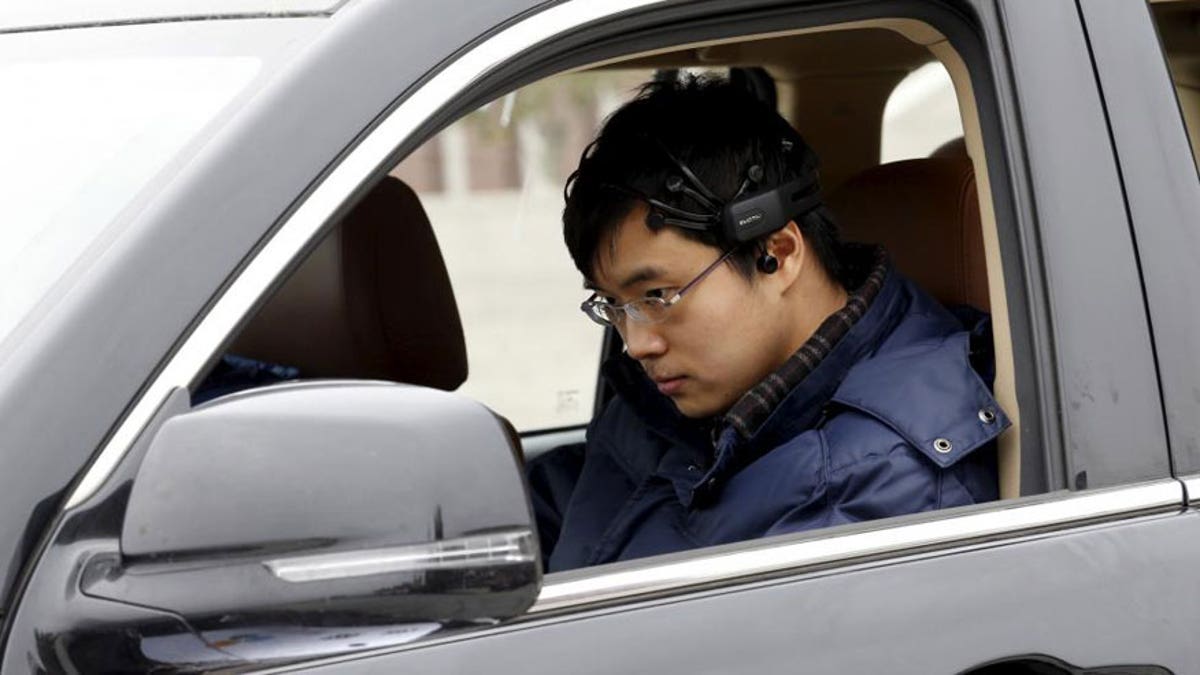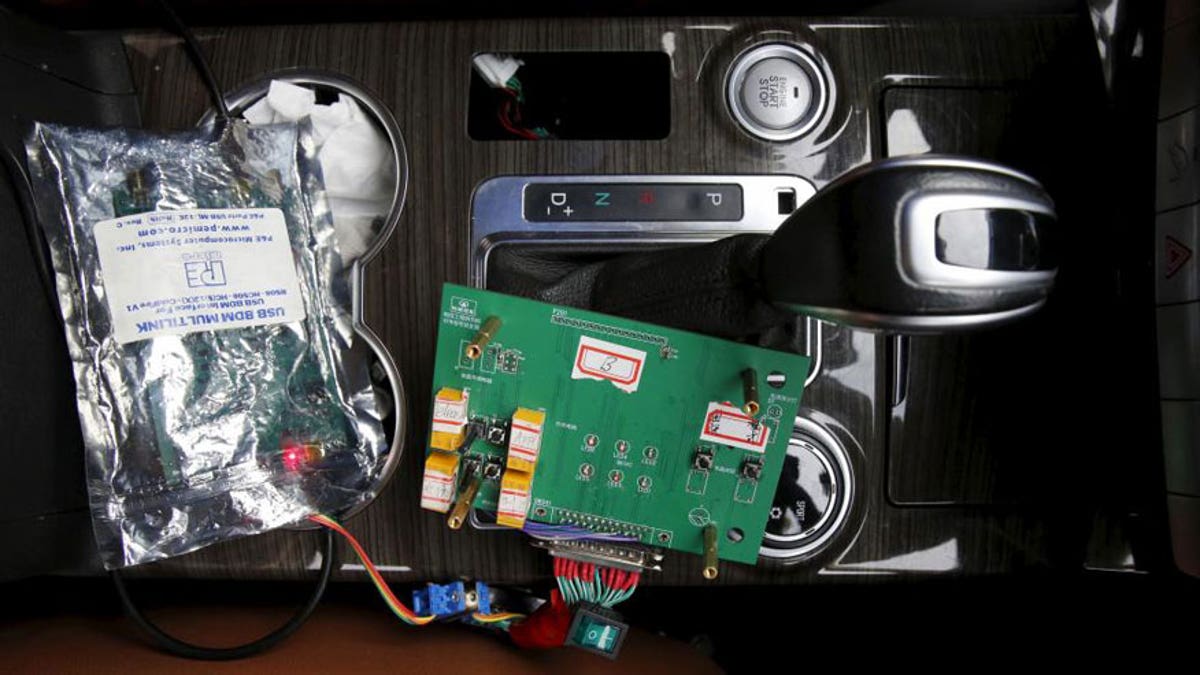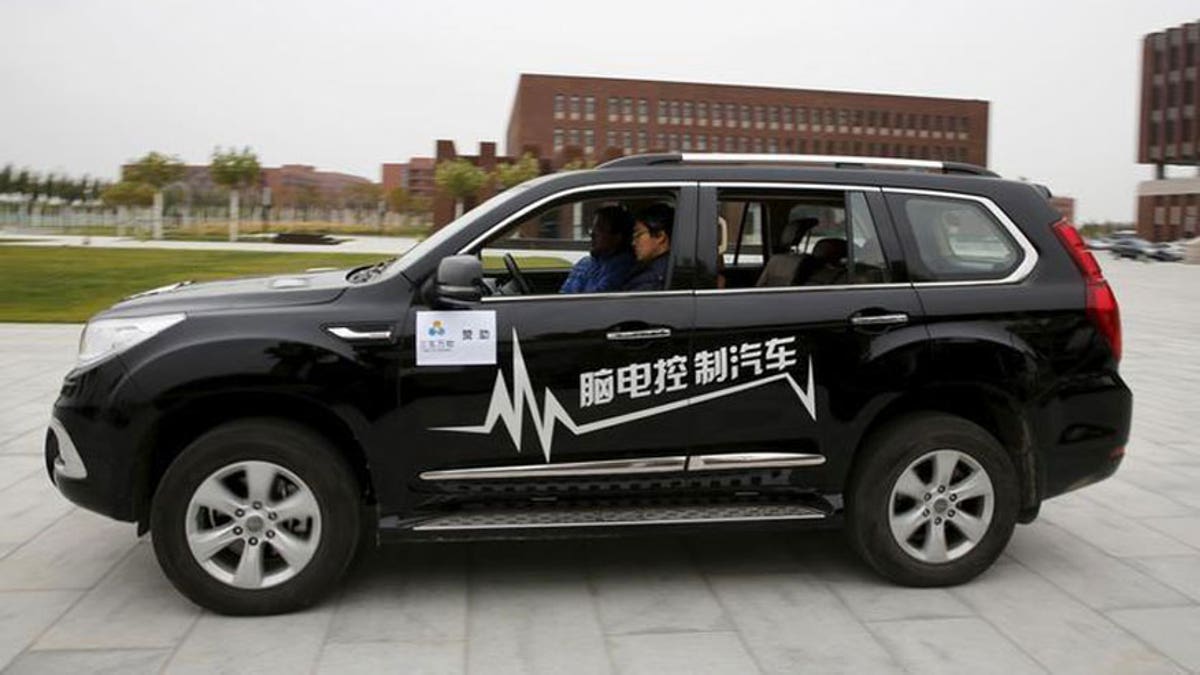
(Reuters)
Chinese researchers have developed a brain-controlled car and hope the technology could one day make life easier for disabled drivers.
The team from Nankai University has been working on the project for two years, and claims it is a world’s first, Reuters reports.
While wearing a device that reads the EEG (electroencephalogram) signals from the brain, a researcher demonstrated how he can move the car forward and backward, stop it, and both lock and unlock the doors with just his thoughts from the back seat.

(Reuters)
"The tester's EEG signals are picked up by this (brain signal-reading) equipment and transmitted wirelessly to the computer. The computer processes the signals to categorize and recognize people's intention, then translates them into control command to the car. The core of the whole flow is to process the EEG signals, which is done on the computer," researcher Zhang Zhao told Reuters.
Steering isn’t possible yet, but the project leader, Duan Feng, thinks the technology can be incorporated into cars with autonomous capabilities to help them interact more seamlessly with their operators.
"In the end, cars, whether driverless or not, and machines are serving for people. Under such circumstances, people's intentions must be recognized. In our project, it makes the cars better serve human beings," Feng said.

(Reuters)
As for the possibility of distractions leading to accidents, Duan said that since concentration to change the “moving status” of the car, even if the mind wanders, the vehicle won’t.
Although the researchers used a production car from Chinese automaker Great Wall, there are currently no plans to put the technology on sale.